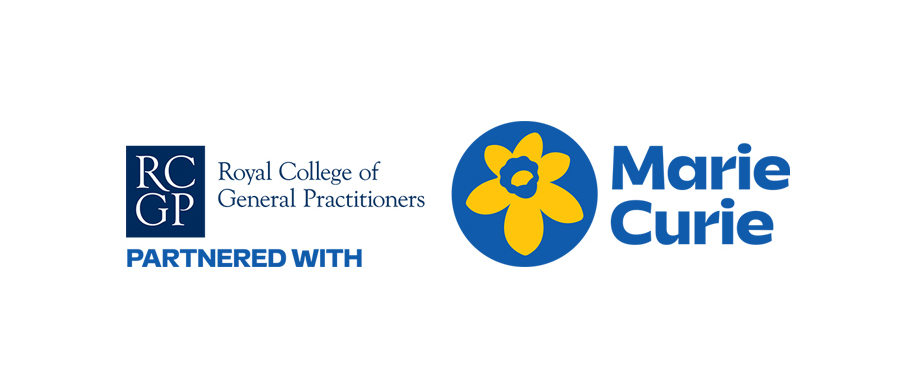The Daffodil Standards offer a free, evidence-based framework designed to support general practices in delivering consistently high-quality care for patients approaching the end of life and those who are bereaved. They help practices self-assess, reflect, and embed simple quality improvement steps into everyday care — creating a culture of continuous learning and proactive support.
How will the Daffodil Standards help my practice?
Put simply, the Daffodil Standards help your whole practice team identify areas for improvement while building on the great care you already provide. Because you know your patients best, the Standards are flexible and practical — supporting you to create a structured, personalised approach that works for your team and your community.
Sign up for free
Registering is quick and easy - sign up below to receive a link to access your free “how to get started” guide.
Sign up to the Daffodil Standards
You can also explore our interactive map to see other practices across the UK who have already joined the Daffodil Standards community.
Goals of the Daffodil Standards
The Daffodil Standards are designed to support your practice in delivering high-quality, compassionate care for people with advanced serious illness and those nearing the end of life. They will help you to:
- Recognise and build on existing good practice
Celebrate what you’re already doing well and use it as a strong foundation for further improvement. - Identify areas for development
Self-assess and highlight opportunities for improvement that are tailored to your patients, your staff, and your practice context. - Create a shared vision for better care
Engage your whole team — and your wider networks — in a collective commitment to enhancing end of life and bereavement support. - Strengthen your practice systems
Develop consistent, whole team approaches for key processes such as coding, communication, and gathering feedback. - Connect and collaborate locally
Share learning and tap into support and opportunities available in your local system and professional networks. - Use a growth mindset through a daffodil analogy
Just like nurturing daffodils, the Standards support you through a continuous quality improvement cycle (plan – do – study – act), embedded across three progressive levels of development.
Getting started
The following links give background information on the Daffodil Standards and how to use them.
The RCGP designed the Standards in partnership with Marie Curie, led by Dr Catherine Millington-Sanders, RCGP and Marie Curie National End of Life Care Clinical Champion. Experienced GPs and healthcare professionals supported the process, and helped make sure the Standards fit into the work you’re already doing, rather than adding to your workload.
The development of the Daffodil Standards has been led by:
- Dr Catherine Millington-Sanders, RCGP and Marie Curie National End of Life Care Clinical Champion
- Dr Rachael Marchant, RCGP and Marie Curie End of Life Care Clinical Support Fellow
Devolved Nations leads
- Dr Scott Jamieson (Scotland)
- Dr Anish Kotecha (Wales)
- Dr Grainne Doran (Northern Ireland)
RCGP and Marie Curie would like to acknowledge key organisations consulted during the development of the Daffodil Standards, including experienced clinicians, academics, commissioners, legal experts, patients and carer groups involved in end of life care:
- Action Hearing Loss
- Age UK
- Ambitions for Palliative and End of Life Care Partnership
- Association of Palliative Medicine
- Bakewell Medical Centre, Derbyshire
- British Geriatrics Society
- British Heart Foundation
- British Medical Association
- Caen Medical Centre, North Devon
- Care Quality Commission
- Carers and Patient End of Life Care Research Network
- College of Health Care Chaplains
- Compassion in Dying
- Compassionate Communities UK
- Connecting With People
- Cultural Difference at EOLC
- Daffodil Standards Academic Review Panel
- Dementia UK
- Dr Rowlands & Partners, Cwmbran
- Goldington Avenue Surgery, Bedford
- Gold Standards Framework
- Harley Street Medical Centre, Stoke on Trent
- Health Education England
- Hospice UK
- Hucknell Road Medical Group, Nottingham
- London Ambulance Service
- Longcroft Clinic, Banstead
- Macmillan
- Marie Curie Devolved Nation Leads
- Marie Curie Expert Voices Panel
- Much Wenlock and Cressage Medical Practice, Much Wenlock
- National Association for Patient Participation
- National Bereavement Alliance
- National End of Life Care Programme Board
- NHS England
- Rangeways Road Surgery, Kingswinford
- RCGP Clinical Advisor Network
- RCGP Clinical Champions Network
- RCGP Devolved Nations Chairs
- RCGP Devolved Nations EOLC Leads
- RCGP End of Life Care Advisory Group
- RCGP Patient and Carer Participation group
- RCGP Patient Centred Care project
- Royal College of Nursing
- Royal College of Physicians
- Skills for Care
- Skills for Health
- Sue Ryder
- The Marches Surgery, Herefordshire
- The Old Station Surgery, Ilkeston
- The Orchard Surgery, Bromborough
- The Spa Surgery, Harrogate
- Together for Short Lives
- University of Cambridge
- University of Manchester
- West Leeds Family Practice, Farsley
- Westfield Surgery, Herefordshire
- Whitley House Surgery, Chelmsford
- Wye Valley Surgery, High Wycombe
- Yardley Wood Health Centre, Birmingham
The launch of the Daffodil Standards raises the opportunity to gain further feedback in order to continue developing these resources to support general practice to give the best possible care and support to all patients living with advanced serious illness and those important to them. If you would like to provide feedback to be considered as part of the next planned review process, please email daffodilstandards@rcgp.org.uk.
Thank you for your feedback. Your response will help improve this page.
